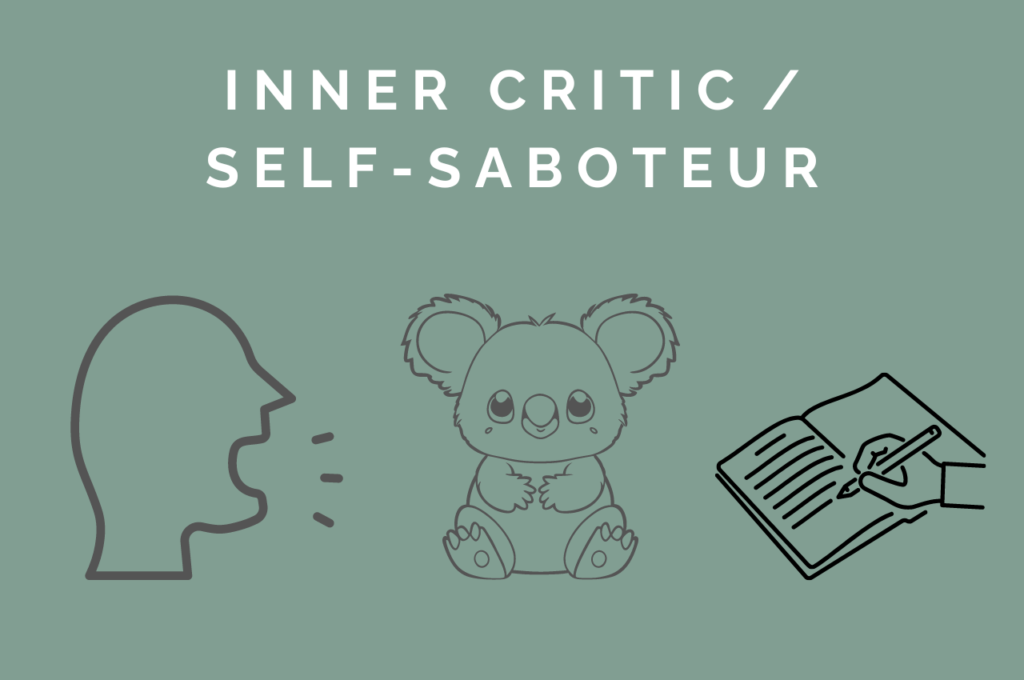In therapy I refer to that judgmental and critical voice in our heads as the ‘inner critic’, often referred to as the self-saboteur too. The inner critic is analysing our every move, and its presence is often berating. From personal experience I know how debilitating the inner critic can be and the power it can hold in the decisions you make.
The voice of the inner critic is usually harsh, rude and even nasty, you probably wouldn’t speak to anyone else with this tone. It is common that the voice of the inner critic is not your own, it could adopt the voice of a parent / grandparent or a former teacher for example. You can detect the inner critic by listening out for language such as, should, don’t, can’t and the words are often repetitive.
So why does the inner critic hold so much power? Our inner critic was created during childhood, to ensure you lived by all the correct rules and lived up to everyone’s expectations. As you grew into an adult, you were not taught how to disengage from the inner critic, so it kept ruling the roost. The reason why we engage with the inner critic is that there is a grain of truth in what it is saying. Our brain then holds onto that grain of truth as a trustworthy source to abide by. Yet, what we struggle with, is separating out that grain of truth from the rest of its hurtful words. We find it hard to disengage from what is has to say and end up getting caught in its berating narrative. For example: ‘Just do another 30 minutes on that presentation, make it sharper, make it clearer, it still isn’t quite good enough.’ Here, there is a grain of truth that you can improve the presentation so we engage with the inner critic, yet 30 minutes may turn into several hours as it will keep repeating this and the cycle continues.
So, what can we do to overcome the inner critic? I think one of the most helpful things is to name the inner critic. I personally did this by giving it a cartoon character and this helped to take out the sting and made it laughable. If you know your inner critic doesn’t have your voice then give it another that makes you smile, e.g. a Simpsons character. Another great tool to disengage with the inner critic is through meditation. Meditation can be extremely effective for allowing thoughts to just be thoughts and therefore, helping create a distance from your inner critic. Journalling is a useful tool, as it helps us to recognise what the inner critic is saying and when the words are on paper, there just isn’t the same weight behind them. Try not to engage with your inner critic, as it has learned how to win, just recognise that it is there, take a deep breath and consciously choose to move on from it.
Next month I will be writing about how we can access and utilise our inner coach that is a much friendlier and more helpful voice to be engaging with.
Please feel free to get into contact with me if you need extra support and guidance.
Rachel


0 Comments